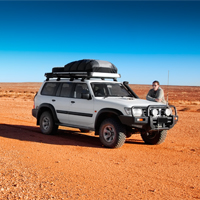First, a definition: Good judgement refers to the ability to make superior decisions based on more relevant insights.
For example:
Your car breaks down in the middle of a desert highway, and you don’t have access to a mobile phone. You don’t know exactly where you are, or how far the nearest town is. For the past 4 hours you have not seen another vehicle.
Should you stay by your car and wait for someone to pass by and (hopefully) help you? Or should you start walking along the highway to (hopefully) reach the next town?
This is where you’d have to make a judgement call, where are no obvious answers.
Let’s say you decide to look for the nearest town, and start making your way down the highway on foot.
Two hours later, you’re still seeing no signs of civilization and it’s getting dark and cold. You have no water and are getting dehydrated.
You are now faced with a second decision: Do you walk back to your car where you can stay warm and sleep safely? Or do you keep on walking in the hopes of reaching the next town before something bad happens (animal attack, dehydration, hypothermia, etc)?
Again, there is no clear answers here.
However, this doesn’t mean that one decision is as equally risky as the other.
Depending on how you frame the problem, one of these decisions can turn out to be the better one.
Optimizing the most relevant factor
Let’s take a step back and consider the situation. Which is more important: Time (urgency)? Or safety (survival)?
Your answer determines what you ultimately choose to do.
If urgency is of the utmost importance, you’d probably take the risk and keep walking. If safety is your priority, you’d probably go back to the car for the night.
In this sense, what you “choose” to do is already predetermined by what you consider to be the most important factor.
In other words, what you judge to be the most important thing, is what you will naturally optimize your decisions for.
So instead of asking, “what should I do?”, a better question to ask is, “what’s the most important thing I should be concerned about?”
Because once you figure out what the most important thing is, ‘what to do’ becomes obvious.
Figuring out what’s important (and what isn’t)
Good judgement, therefore, is really about solving problems by isolating the most relevant factor(s) at play.
In other words: “What’s the one or two factors that, if go well, will render all other factors unimportant?”
How To Develop Good Trading Judgement
In trading, unfortunately, there is no shortcut to having good judgement.
It’s not something you can reason out theoretically, or learn from a book. It’s something you can only develop with experience.
For example, I used to think that making money was the most important thing in trading.
I mean, that’s logical, isn’t it?
Well, here’s the thing. Good judgement isn’t just about logic, because logic is restricted by the limits of our current understanding.
A computer can process logic perfectly, but it cannot practice good judgement because it is restricted by fixed inputs. A computer can easily optimize for any factor – it just can’t tell which factor it should be optimizing for.
Humans, on the other hand, have the ability to gather, synthesize and attribute meaning to ever-increasing sources of input, enabling us to view each situation from different perspectives and with greater depth and appreciation than a computer ever could.
The path to good judgement, therefore, lies in increasing the limits of your understanding through experience, learning, and self-reflection.
Learn, test, fail, learn, test, fail, learn more, rinse and repeat. With time, you’ll start seeing the “problem” with different eyes. And that’s when you’ll start developing insights about what’s important and what isn’t.
Years ago, I thought that making money was the most important thing in trading.
These days, I’ve come to see that it’s far more important to be making money over the long term.
“But wait…”, you say. “Aren’t they the same thing?”
Well, no, they aren’t.
If you want to know why, you might want to check this out.

Thank you Chris Lee
And as with all you reflect on and pass on to aspiring traders there is food for thought.
I agree with you that consistency is the key and over a long term outlook this is what seperates winners and losers and heaven knoows I hate losing.
Thank you for the post.
Regards
Nikola
Chris Lee, I really appreciate your breakdown of this course,have been following you some years back.I will like to ask you this question,am a newbie in forex.How much is good to invest in my brokers account?what time frame is good as an entry point for the newbie?mainly,what leverage is reliable for beginnners?i will be glad I you can reply this comment sir.
Hi Bello, good questions. I’ll be looking to answer them more comprehensively in a blog post. Thanks for the ideas.
I agree, that historical trading set-ups from experience are a better trading judgement tool than just using your technical analysis ability to find trading opportunities. Just finding the trades that work best for you, then looking for those trades helps overall.